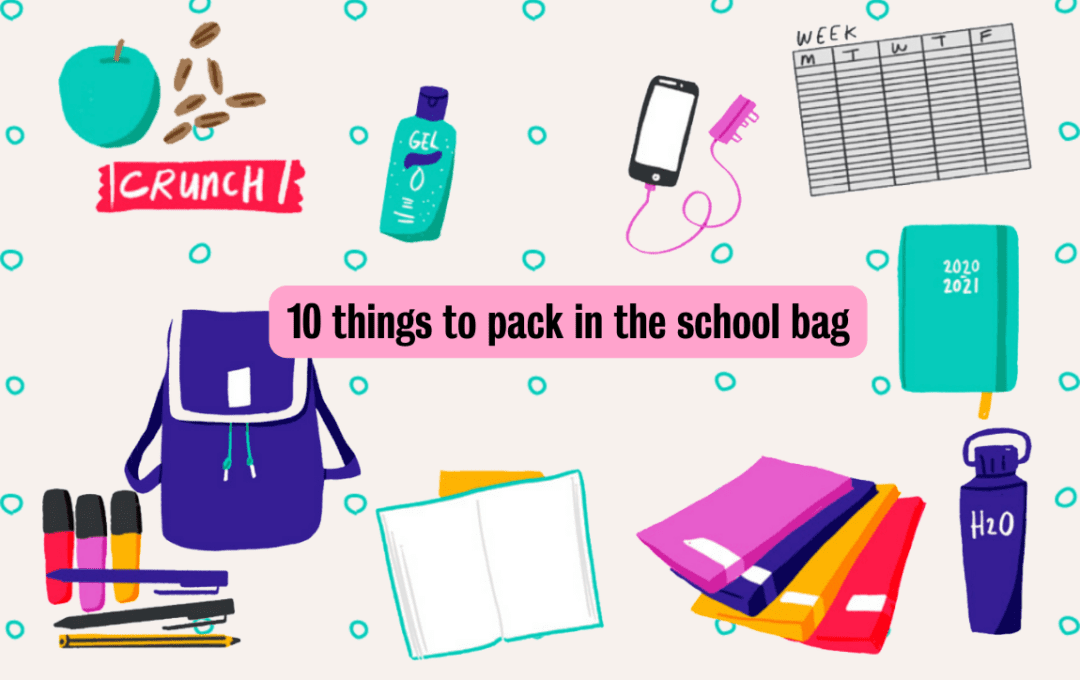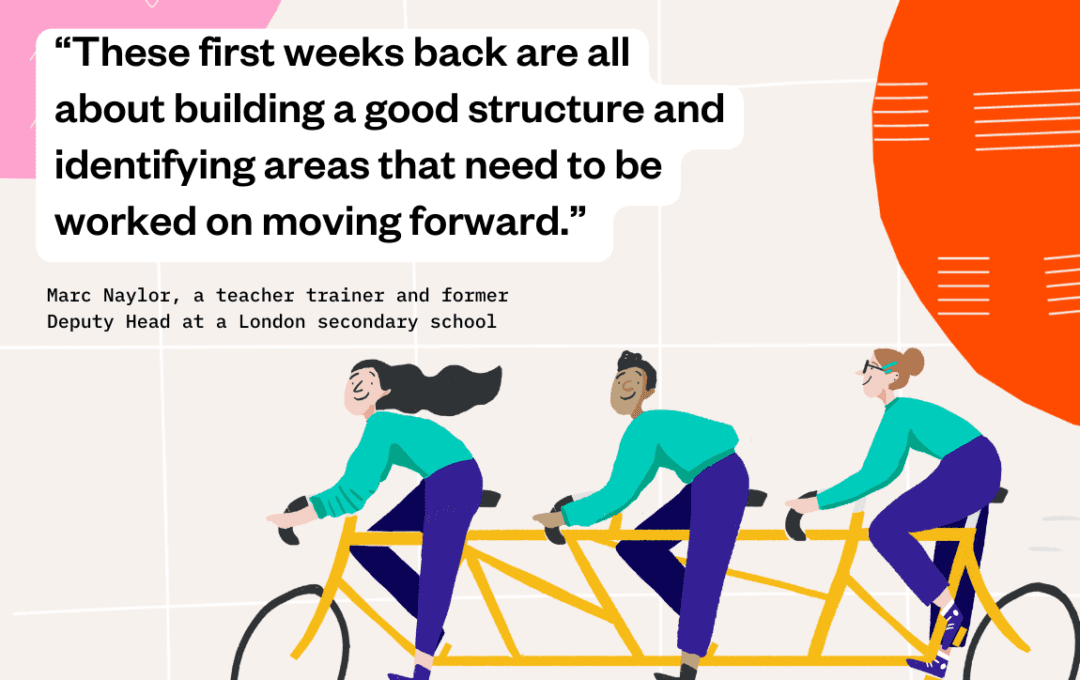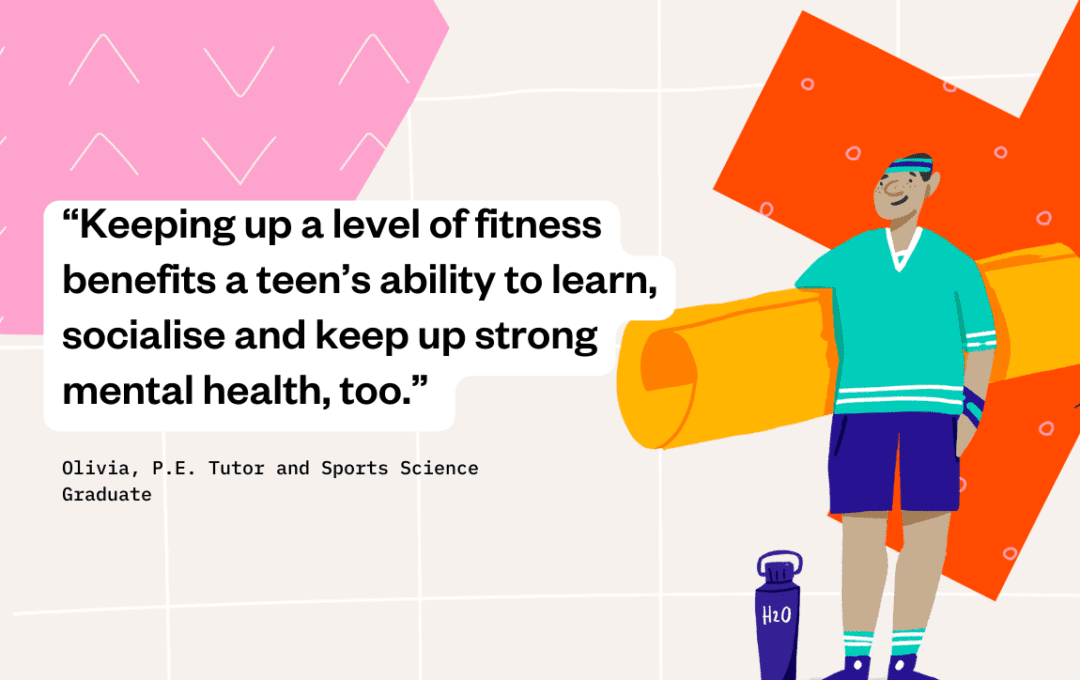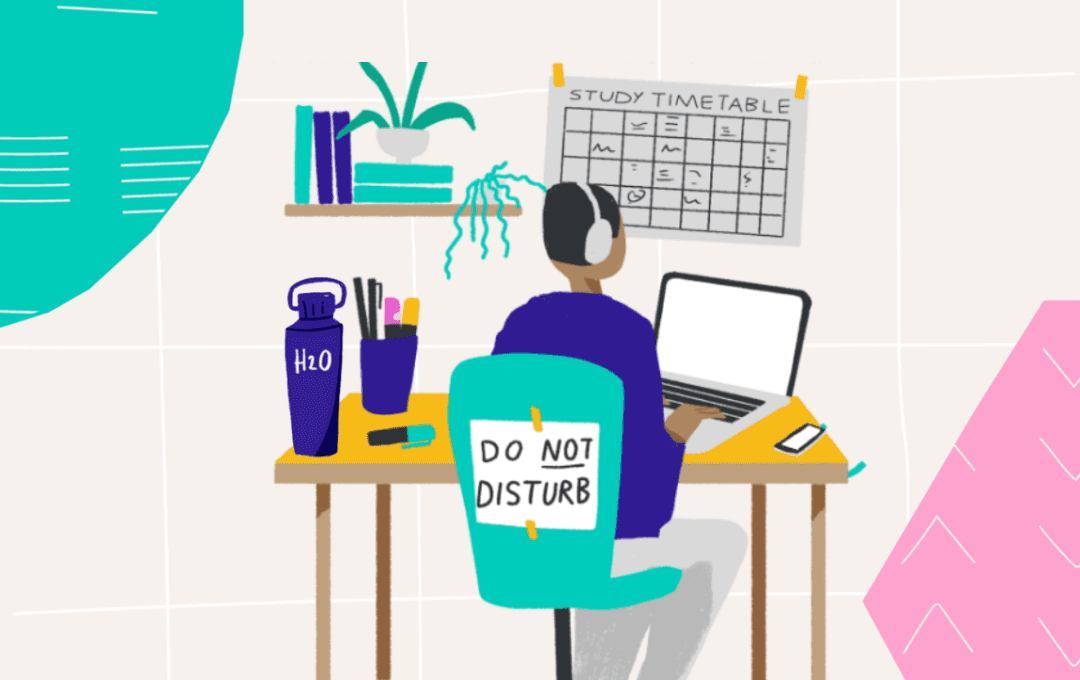For teens, the autumn term brings a whole load of new challenges. Starting a new year group, new subjects and maybe even a new school can be a shock to the system – not to mention learning after six whole weeks off.
They might need a little help and support from you to get back into their school routine. To make things easier, we’ve put together some advice from the experts to help you help them get emotionally, academically and practically ready for the new school year. Let’s dive in to our Back to School Survival Guide 2023.
Contents:
- What to do the week/weekend before school
- What to pack the night before school
- How to prepare them academically
- How to prepare them emotionally
- How to prepare them physically
- How to create a great study set-up at home
What to do the week/weekend before school
After the long summer holidays, it can be challenging to help your teen get back into the school routine. Here are a few steps to take to help you and your teen feel ready:
- Make sure summer homework is done
- Create a calendar of key school dates
- Talk about back-to-school anxiety together
- Start the days with breakfast as a family
- Re-introduce going to bed early again
- Buy any last-minute school equipment or books
- Prep their school bag and uniform
- Test the school run (if it’s a new school)
What to pack the night before school


- Reusable water bottle – because it’s important to hydrate!
- Timetable – so they know where to go
- New notebooks – for taking notes in class
- Homework diary – for noting deadlines and key dates
- Pens and pencils – black and blue pens for taking notes and highlighters for highlighting
- Folders for each subject – to collect and store worksheets and files
- Hand sanitiser – germs be gone!
- Snacks – to keep them going until home time
- Mobile phone – to be kept in their bag while at school
- Any other equipment like a calculator, a protractor or language dictionary
How to prepare them academically


The first few weeks back at school will be a big deal for everyone involved – teens might be nervous, parents concerned, and teachers will be getting prepped, too.
Lots of these feelings are inevitable, but there are lots of ways you can support the transition. Here, we asked Marc Naylor, a teacher trainer and former Deputy Head at a London secondary school – for his views on how parents can help their children make the return to school as smooth as possible.
1. One step at a time
However confident your teen is feeling about their schoolwork, start small and build up from there. If they’ve done very little over the summer, aim to spend some time during the week and weekend before going through their summer work toether.
Don’t concern yourself too much with how well they perform at first – these first weeks back are all about building a good structure and identifying areas that need to be worked on moving forward.
2. Look at school material
In the last week of the holidays and the first weeks back, take some time together to look over the teaching material supplied by school (such as leftover homeschooling textbooks, or any summer catch-up work) and see what still needs to be done.
Encourage your child to re-read set texts from earlier in the academic year to refamiliarise themselves with the plot and writing techniques used. Failing that, encourage reading of any kind that suits their academic level – studies show that reading is a key indicator of success.
3. Think about reading lists
Some subjects such as English might have reading lists, and it’s a good idea to encourage your child to start reading these texts so that they become familiar with them and better prepared to study them in more detail when they get to school.
For other subjects, reading about them broadly is a great way to get your teen to get excited about the topic and to fuel their interest in it early on.
For an even more relaxed way to take in subject knowledge, watching relevant films and TV shows that reflect their modules can be a fun and relaxed way to get thinking about the topics. We’ve even got a handy list of GCSE and A Level-relevant films to help you get started.
4. Consider working with a tutor
At the start of term, your teen’s teachers will be focused on getting them caught up and on track. For some dedicated 1-1 academic help to support this, our online tutors can offer teens the curriculum knowledge and subject expertise they need to put learning gaps behind them.
Because they’re all students and recent grads from unis, they double as mentors, offering much-needed confidence boosting and reassurance at this challenging time.
How to prepare them emotionally


As well as catching up with school work, the emotional impact of seeing their friends and dealing with the pressures of future exams and big decisions will be a challenge for your child.
Supporting your child with their mental health is key to help them feel and perform at their past after the summer holidays. Here’s Wellbeing Practitioner Alicia Eaton’s advice on doing just that.
1. Expect a little drama
Getting back to school after six weeks off can be overwhelming for some kids. Don’t be surprised by a few emotional outbursts or episodes of sadness to begin with, as it will take a bit of time to adjust back or get used to the next academic stage.
2. Help them get back into the school mindset
One way to make the return to school less of a jolt is to have an ongoing conversation about it with them at home. Helping them imagine going back, talking about the subjects they’re taking and the teachers they’ve got this year can all make the first couple of weeks back less daunting.
Similarly, walking the route to school, getting them into the routine of getting up early and going to bed at a good time or trying on their uniform on can all begin to get them into the school mindset.
3. Ask them how they’re feeling
Talking about our feelings helps us to feel close to the people around us and to feel better. It can be harder for children to do this as they haven’t always developed the vocabulary to describe how it feels to be sad, scared or excited.
Be available for your teen, listen to their worries and offer reassurance. Try to expand general conversations into talking about emotions and how they feel about going back to school and the new challenges ahead.
4. Tackle social worries
Even the most confident of teenagers will find the first day back at school a bit daunting. Some children have social anxiety and may feel worried about being back.
Encourage them to arrive early to school so they’re one of the first in. That way, it’s much easier to strike up conversations and feel a part of things when there are only a small number of teens there. Turning up even five minutes later when conversations are in full flow and initial instructions from the teacher have been given, will add to that feeling of being left out.
How to prepare them physically


Keeping fit and staying active during the summer holiday may have been trickier (for you and your teen!). If your teen is feeling strong and active by the time they head back into school, they’ll find it much less of a challenge – it can also boost their concentration and sleep quality!
Here, we ask our star P.E. tutor and Sports Science graduate Olivia for her top tips on getting your teen physically ready for school.
1. Move every day
Keeping up a level of fitness benefits a teen’s ability to learn, socialise and keep up strong mental health, too. It can be hard to squeeze in the movement but if they can start working some physical activity into their daily routine, it can help make the transition back to school life a lot smoother.
Start by moving around for around an hour every day. It doesn’t have to mean sweating it out! Going for a jog, a bike ride, walking the dog or playing a game in the park with siblings or friends are all fun ways to get moving without running drills.
2. Wake up and stretch!
A great way to set your teen up for the day is to encourage them to stretch first thing. Doing this to their favourite song for 3-5 minutes when they get out of bed in the morning is a really fun way to make movement part of their daily routine. Benefits include having more focus throughout the day and less stress and anxiety.
3. Feed them brain food
We all know that it’s important to eat a balanced diet. But it can help to think of this as being about adding more of the good stuff rather than changing your eating habits drastically.
Try including more fruit and veg, and smaller portions of protein and fats to help boost their energy levels throughout the day.
4. Start the day right
Once they’re back at school, try having breakfast together each morning. It’s easy for teens to get into the habit of skipping breakfast in the flurry of the morning rush, but starting the day with a proper meal will make it easier for them to stay energetic, focused and ready to learn until home time.
5. Prioritise sleep
Keeping a consistent bedtime routine is one of the most important aspects of preparing to return to school. It directly links to attention span, brain development, mood and energy levels – all must-haves for the school day! If your teen has become a night owl lately, reverting to earlier bedtimes and getting up earlier in the last week of the holidays will make the 7am alarm less of a shock on the first day back.
Check out our healthy habits to encourage during exam time (and any time, really!).
How to create a study set-up at home
Your teen’s home study routine and set-up will be a key part of their academic success. Here’s how to help create your teen’s study hub at home.
1. Give them their own homework space
As your teen faces the new challenges that come with a fresh academic year, having a dedicated space in a quiet corner of the house is really important. However much homework they have, knowing they have a space where they can sit down and knuckle down will take some of the stress out of studying.
2. Find out where they’re at with each subject
You can do this by communicating with their teachers, and you can also discuss with your child. By talking it through, you could also float the idea of a tutor who can help them get ahead of knowledge gaps or help with tricky topics before they get stressed.
3. Adapt to their learning style
Everyone learns in a slightly different way, and you can help at home by getting them the resources and kit that help them the most. They might love mindmaps and a fresh set of pens might help, or they might love podcasts and audiobooks which you could help them curate.


Read more advice in our ultimate guide to helping them study at home.
We hope our Back to School Survival Guide for 2023 was helpful and that you and your teen have a great start to the new school year!
Would your teen benefit from the support of a tutor this new school year? Our tutors can help build their confidence as well as help with learning gaps and exam revision. Find the right one for them here.




